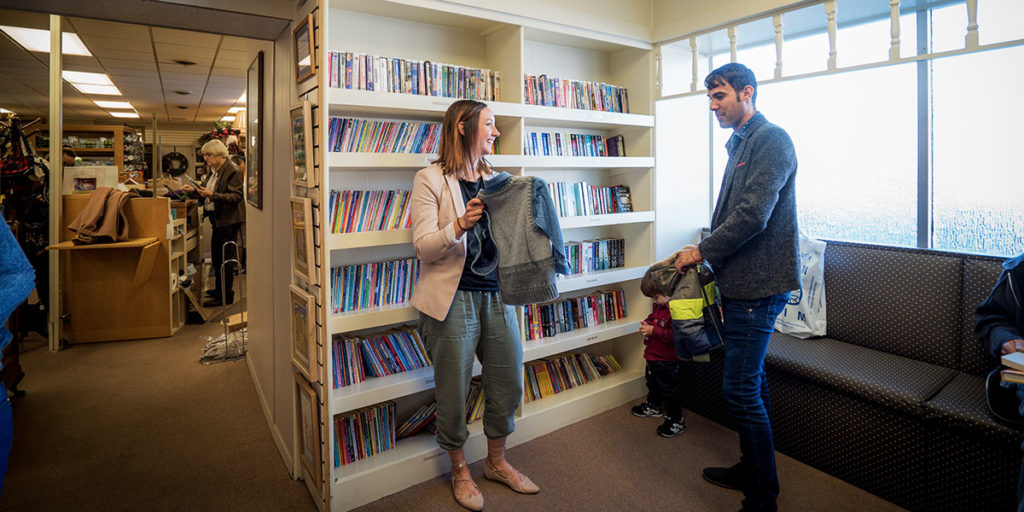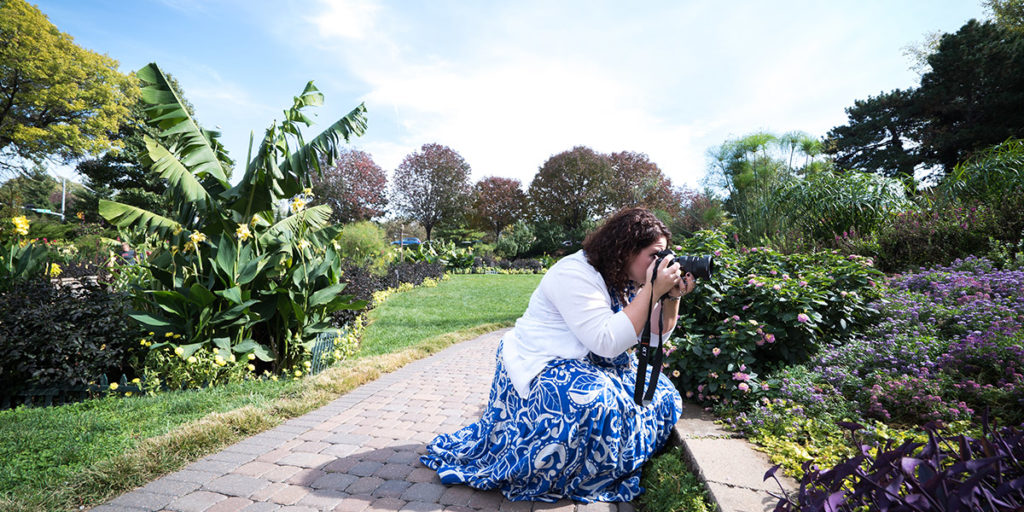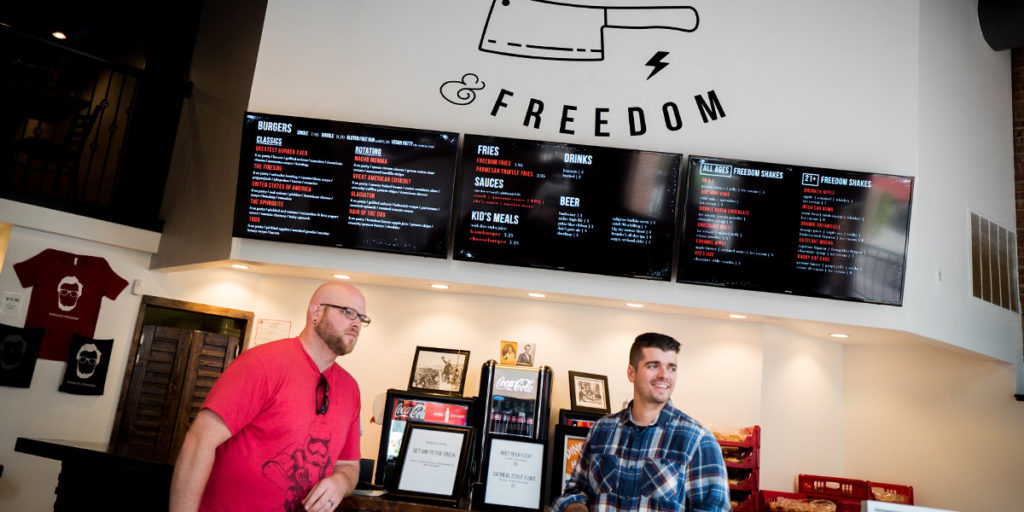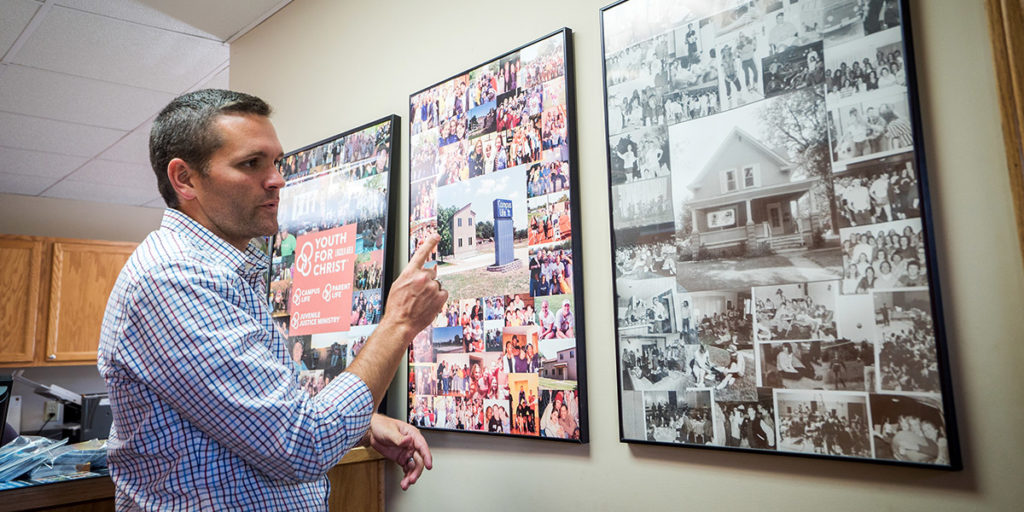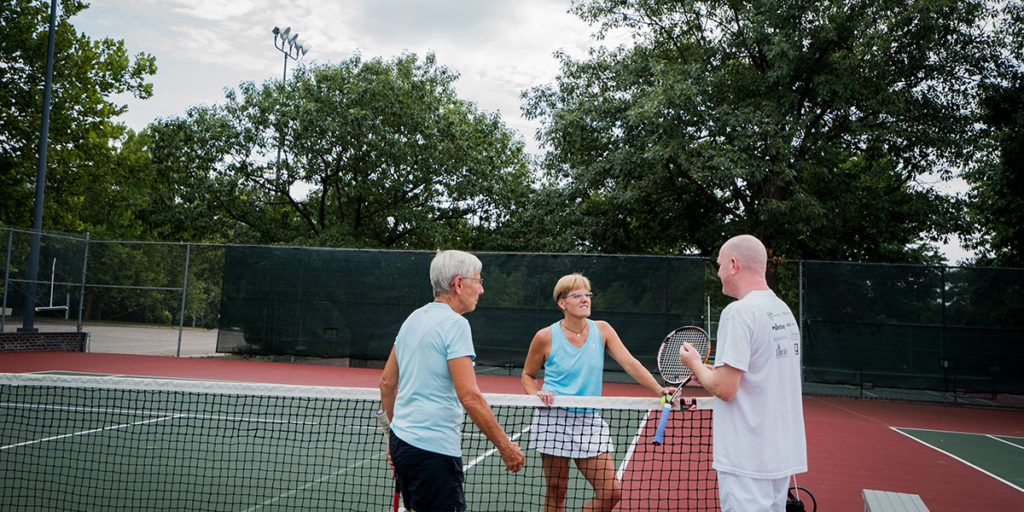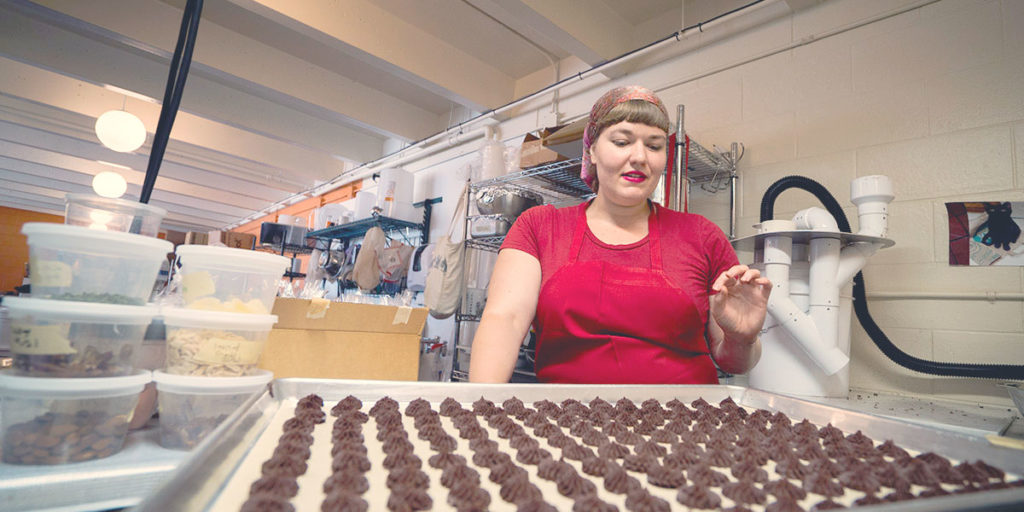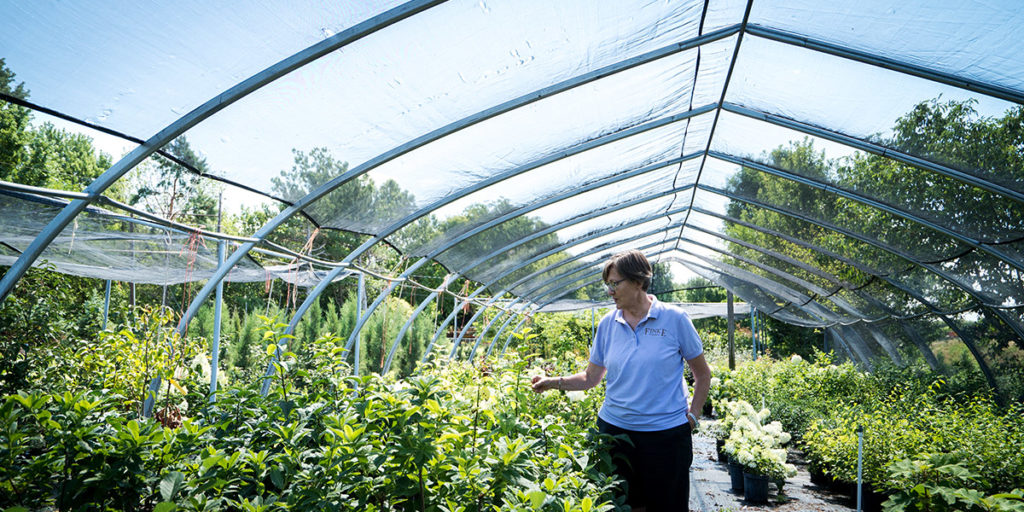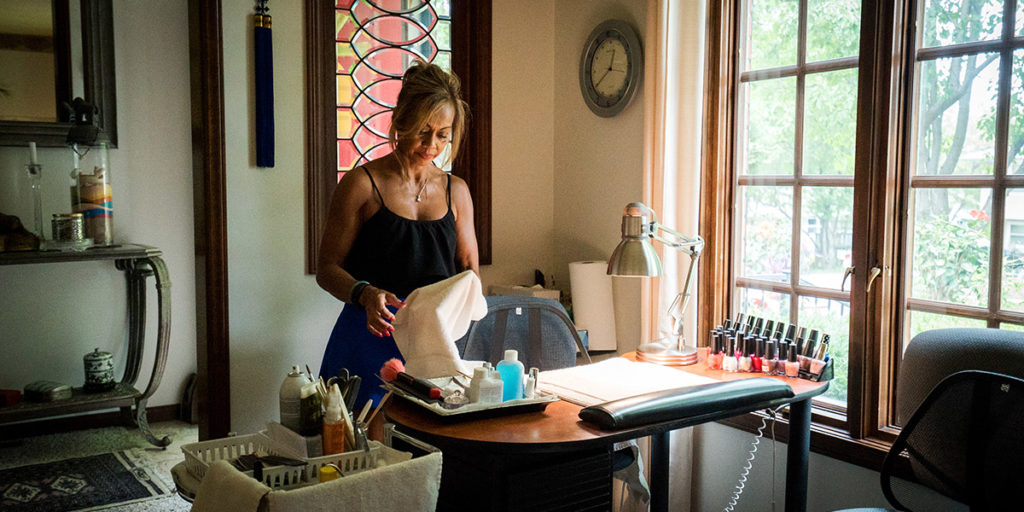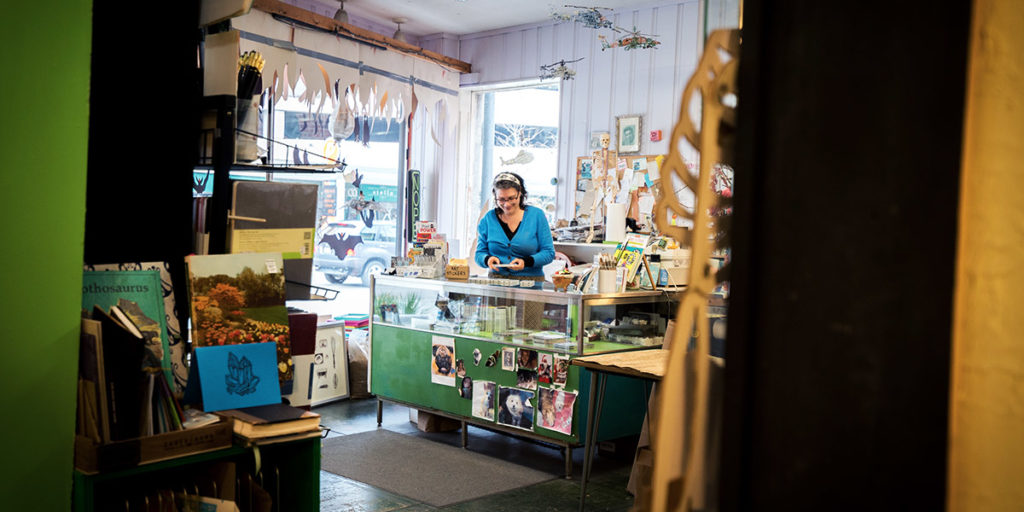
Peggy Gomez said that Mondays are typically her busiest day at the shop. She does inventory and helps the customers who come in looking for various art supplies.
Running and owning Gomez Art Supply has become her life. It wasn’t what she set out to do, but somehow it’s become her story.
As a kid, Peggy said she was always interested in art. She grew up in Omaha as the daughter of a father with Mexican heritage and a mother with Irish blood. They were supportive of her love for art and encouraged her to pursue it during school. She earned a Bachelors in Fine Arts at UNL and her Master’s in Fine Arts at the University of Minnesota, before returning to Lincoln to teach.
Peggy taught at the University for nearly 10 years, specializing in drawing and printmaking, and while she enjoyed working with the students, she said she knew she didn’t want teaching to be her full-time gig.
She remembers overhearing students talk about how they wished there was a local place to buy art supplies in Lincoln. The big stores were either not helpful or many were located far from campus. Back when Peggy was in school, there were small art shops in town, but they’d since closed, giving her the idea that just maybe she could open an art supply shop.
The idea slowly grew over the years and eventually she quit her job at the University with the hopes of starting her own business.
But in 2002, time stood still for Peggy. Her father passed away, leaving a big void in her life, and causing her to take some time off to figure out her next step.
Her father was the kind of dad everyone hopes they have, she said. He was always showering her and her two sisters with encouraging words, often looking them in the eyes and saying, ‘Did I tell you how much I love you today?’
“In life, if you’re lucky, you get what you need in a family,” Peggy said. “And my dad was the one we were all closest to.”
She still wishes he could have been around when she opened the doors to Gomez Art Supply in the fall of 2003. Her father was a businessman himself, who would have loved to see Peggy settle on a career, she said, but she always knew he was proud of her.
She intentionally named the shop ‘Gomez’ as a tribute to her father. It’s a good name, she said, and he was a good man – she keeps an old picture of him hanging on a wall behind the register in the shop.
Most days, Peggy said, she’s proud of how she’s kept her shop open and thriving for 13 years – and she knows her dad would be proud too. She’s got grit and lots of staying power, she’s not easily swayed and isn’t fussy about the little things.
When a big name art supply shop moved in just blocks from her shop, she thought maybe her days were numbered, but they weren’t. Peggy’s connection and support from the University, along with her integration into the Lincoln small business community have made her and her shop a well-known and loved part of downtown Lincoln.
But there are bad days too, she said. Her heart still sinks when a customer leaves a bad online review or when she overhears people in the shop complain.
It feels personal, she said, and the hardest part is learning how to develop a thick skin. Sure, her business isn’t all of who she is, but there is so much about Peggy that’s tied to her work.
When Peggy isn’t in the shop, she’s running the Tugboat art gallery in collaboration with other local artists. The gallery is a place where artists of all kinds can show their work and engage with the community. She doesn’t financially benefit from this kind of work, she just does it. It’s her way of giving back to Lincoln and supporting something she values.
Being a supportive part of the community was always in her rough sketch of a business plan. It’s something her dad did, and something she knew she wanted to be part of her legacy as well.
Gomez Art Supply is where Peggy saw her hazy future clear up. It’s where her love of art, community and quality converged. It’s a place that bears her family name, and one that she’s proud to own and operate even on the days when it’s stressful and overwhelming.
It isn’t a big art superstore and it never will be. It has hand-drawn murals and signs, and that’s the way it’s going to stay. It’s got character, spunk and it has weathered its fair share of uncertainty, but it’s Peggy’s shop and when she shuts off the lights and locks the door, that’s what matters.
